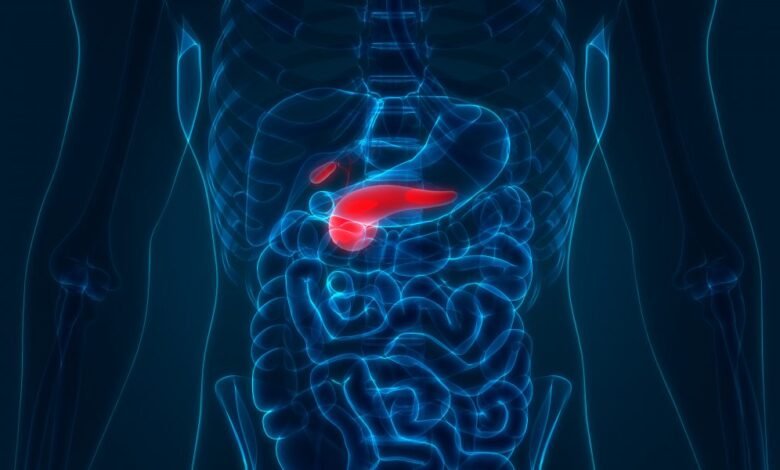Understanding Pancreas Swelling: A Guide to Recovery and Health

Nestled deep within the abdomen, the pancreas might be small, but its influence on our health is immense. Serving as a critical player in the digestive system and regulating blood sugar levels, this organ’s optimal functioning is crucial for our overall health. When the pancreas becomes swollen, a condition known medically as pancreatitis, the repercussions can profoundly affect an individual’s well-being, disrupting daily activities and causing significant discomfort.
Timely medical intervention and an examination of daily habits, dietary choices, and lifestyle changes are crucial in effectively addressing pancreas swelling and its treatment. Understanding how these factors influence recovery is essential for maintaining or restoring pancreatic health, underscoring the importance of proactive healthcare and informed lifestyle decisions in managing pancreas swelling treatment.
Identifying the Need for Pancreas Swelling Treatment
Recognising the symptoms of pancreas swelling is the first critical step toward healing. Symptoms can vary from abdominal pain and nausea to more severe signs like fever and a rapid pulse. These indicators necessitate immediate medical attention to confirm the diagnosis through tests and imaging.
Once a diagnosis is made, the journey towards recovery begins. Here, the emphasis is on alleviating pain, minimising inflammation, and protecting the pancreas from further damage. This crucial treatment segment involves a tailored approach based on the individual’s condition and needs.
Diet and Lifestyle
Central to managing pancreas swelling is revising one’s diet. Health professionals advocate for a low-fat diet that eases the burden on the pancreas, coupled with ample hydration to help eliminate toxins. Hospitalisation might be necessary in severe cases to ensure the patient receives adequate nutrition and pain management through IVs.
Abstaining from alcohol and smoking is non-negotiable, as both can exacerbate pancreas swelling. The toxins and chemicals in cigarettes and excessive alcohol can lead to inflammation and stress on the pancreas, significantly hindering the healing process. Regular check-ups and monitoring by healthcare professionals are crucial to ensuring the recovery process remains on the right path.
These appointments allow for fine-tuning treatment plans based on the individual’s progress and any new symptoms that may arise. In addition to these measures, incorporating stress management techniques such as meditation, yoga, or even regular walks can significantly support overall well-being.
Incorporating stress-reducing activities like yoga or meditation can complement medical treatments, offering a holistic approach to recovery. However, these methods should always be discussed with a healthcare provider to ensure they fit into the broader treatment strategy without causing harm.
Know more about Pancreatic Cancer: Factors, Symptoms, and Types
The Power of Knowledge and Support
Education plays a pivotal role in managing pancreas swelling. Individuals can take proactive steps toward their health by understanding the condition, its triggers, and the impact of lifestyle choices. This empowerment is crucial for adhering to treatment plans and making informed decisions about recovery.
Navigating pancreas swelling can be challenging, but support groups and counselling offer a network of encouragement and advice. These resources provide emotional support and practical tips for dealing with the day-to-day challenges posed by pancreatitis.
Adopting a Preventive Lifestyle
Adopting a lifestyle prioritising health and wellness is paramount to preventing the onset of pancreas swelling. For those at heightened risk of developing pancreatitis, engaging in a regimen that emphasises balanced nutrition, incorporating a variety of nutrients, and minimising the intake of high-fat foods is foundational. Complementing a nutritious diet with regular exercise helps maintain a healthy weight and reduces stress on the body’s systems, including the pancreas, is equally vital.
Moderation in alcohol consumption is another critical aspect, as excessive drinking is a known risk factor for pancreatitis. Beyond lifestyle choices, ensuring regular engagement with healthcare providers for check-ups can significantly aid in the early detection and prevention of pancreas swelling. These check-ups allow for timely intervention and management strategies, potentially averting the progression of pancreatitis. Collectively, these preventative measures form a robust defence against the development of pancreas swelling, highlighting the power of proactive health management in safeguarding against this condition.
Final Thoughts: A Journey Toward Health
Overcoming the challenges of pancreas swelling is a multi-faceted journey encompassing more than just medical treatments. It involves a commitment to making healthy lifestyle choices, staying informed, and leveraging the support of healthcare professionals and peers.
By adopting a proactive approach to health and recovery, individuals facing pancreas swelling can navigate their path to recovery with confidence and resilience. Remember, the health journey is a partnership between you and your healthcare team, tailored to your unique needs and circumstances.



